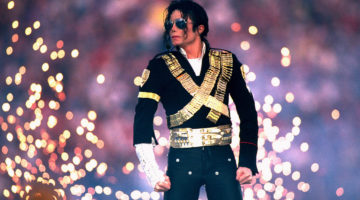After the release of the documentary “Surviving R. Kelly”, which details allegations of abuse and pedophilia against R&B singer R. Kelly, the internet was swept with calls to investigate the singer and efforts to boycott his music. As R. Kelly underwent court proceedings, music’s most influential late pop artist Michael Jackson was accused of child molestation in another jaw-dropping documentary “Leaving Neverland”.
One thing’s for certain — both documentaries have left fans embattled with the decision to either separate the music from the artist or abstain from supporting them completely.
Before “Surviving R. Kelly” aired on Lifetime, streaming services like Spotify removed Kelly’s music from their platform briefly under a newly introduced hateful conduct and content policy for ongoing abuse accusations. A policy that also affected late rapper XXXTentacion who was charged with battery against his pregnant girlfriend. Spotify later retracted their decision and subtly added a feature where listeners can block certain artists from playing on their account.
Fast forward to the release of “Leaving Neverland”, Billboard reports while Jackson’s music began to gradually decrease in radio airplay by 13 percent, on-demand audio and video streams increased by six percent. This begs the question of whether allegations made against an artist have an impact at all?
It is an uneasy and uncomfortable feeling to hear the victims in “Leaving Neverland” share their experiences with Jackson in graphic details. Details so disturbing that when the film was first shown at the Sundance Film Festival, E! News reports mental healthcare professionals were on site to aid any audience members distraught by the film’s content.

R. Kelly (left) and Michael Jackson (right). The two artists have recently come under fire for allegations of child and sexual abuse, leading many to question whether it’s possible to separate music from the artists.
Without a doubt, Jackson has positively affected millions through his music and left his mark on the industry for many artists. What does one do when a music legend turns out to be an accused perpetrator in inappropriate acts?
This question has haunted fans on both ends of the spectrum. The thought brings into perspective various factors beginning with if the consumer initially believes the accusations. For the case of Michael Jackson, an artist with a massive global fanbase, there have been a plethora of devoted fans willing to stand behind the late singer.
Earlier this month, photos surfaced of two ads posted on the sides of double-decker buses in London of a portrait of Jackson with the word “innocent” taped over his mouth. To the left of the portrait, the ad reads “Facts Don’t Lie. People Do.” with the link MJInnocent.com posted next to the phrase.
On the other hand, fans condemned Jackson while iconic television shows such as the Simpson pulled an episode featuring Jackson’s voice from episode rotation.
While the allegations made against Jackson remain inconclusive, what happens when artists are proven guilty?
In 2009, Chris Brown was sentenced to five years probation after pleading guilty to felony assault of his then-girlfriend, Rihanna. The events that unraveled before a pre-Grammys party left a brief stain on Brown’s career for years to come.
Despite evidence of the assault, fans remained loyal to Brown as he sold out joint music tours and even won a Grammy in 2012 for Best R&B Album for “F.A.M.E.”.
In the cases that celebrities find themselves as the perpetrator in grave situations, fans should no longer support the artist. When one streams their music or buys a concert ticket, fans are supporting the musician’s lifestyle one way or another. If fans choose to stay loyal to their preferred artist, they must be willing to admit the fault at which the singer is responsible for possessing.
One cannot separate art from the artist. Music is a gateway into the life of a musician. Artists tell stories through their craft and into the spotlight — being a fan is more than just the music. While music guides appreciations for the singers work, fans are inspired by musicians on multiple aspects including fashion, dance, and empowerment.
Being in the spotlight is more than promoting one’s self-work — fame garners a unique power of influence and even serve as a role model for others.
As for Jackson and R. Kelly, a number of fans remain loyal of the artist due to the presumption of innocence, in other words, “innocent until proven guilty.” However, with past investigations and acquitted trials even before the release of the documentaries, it makes one wonder if there lies a hint of truth in all of this. With growing wealth and powerhouse team of lawyers, it makes it easier for a person to get away with such crimes.
After watching “Leaving Neverland”, there lies a large difference in the way the victims carry themselves as they recount their stories as opposed to way R. Kelly acts in a recent interview with CBS’ Gayle King.
Evidently, Jacksons and R. Kelly’s tracks will not sound the same the next time you hit play.











